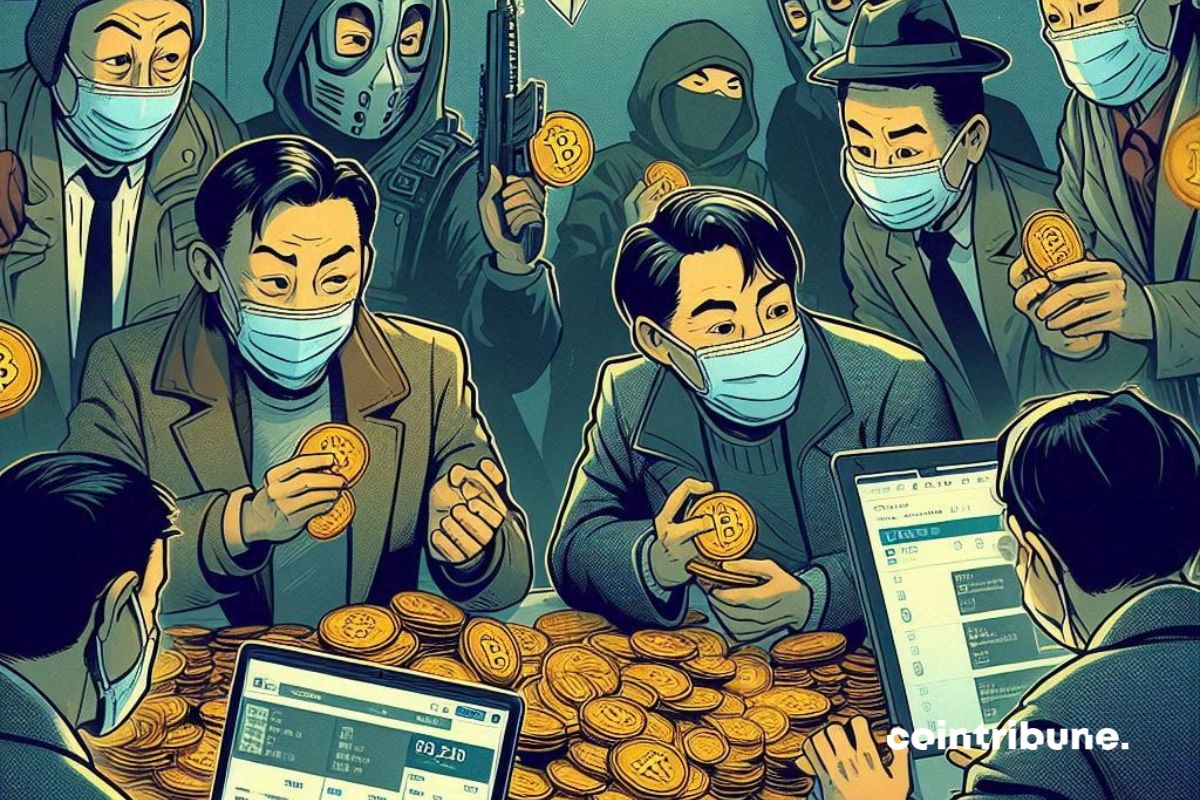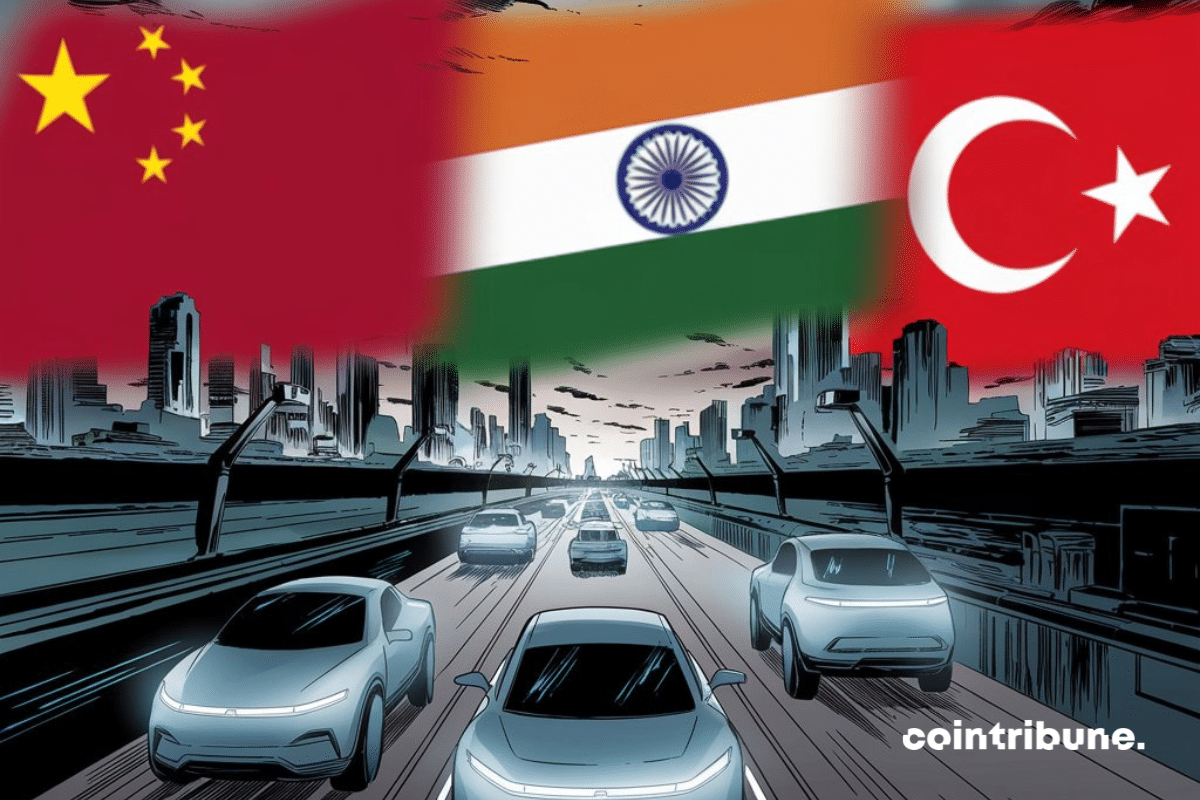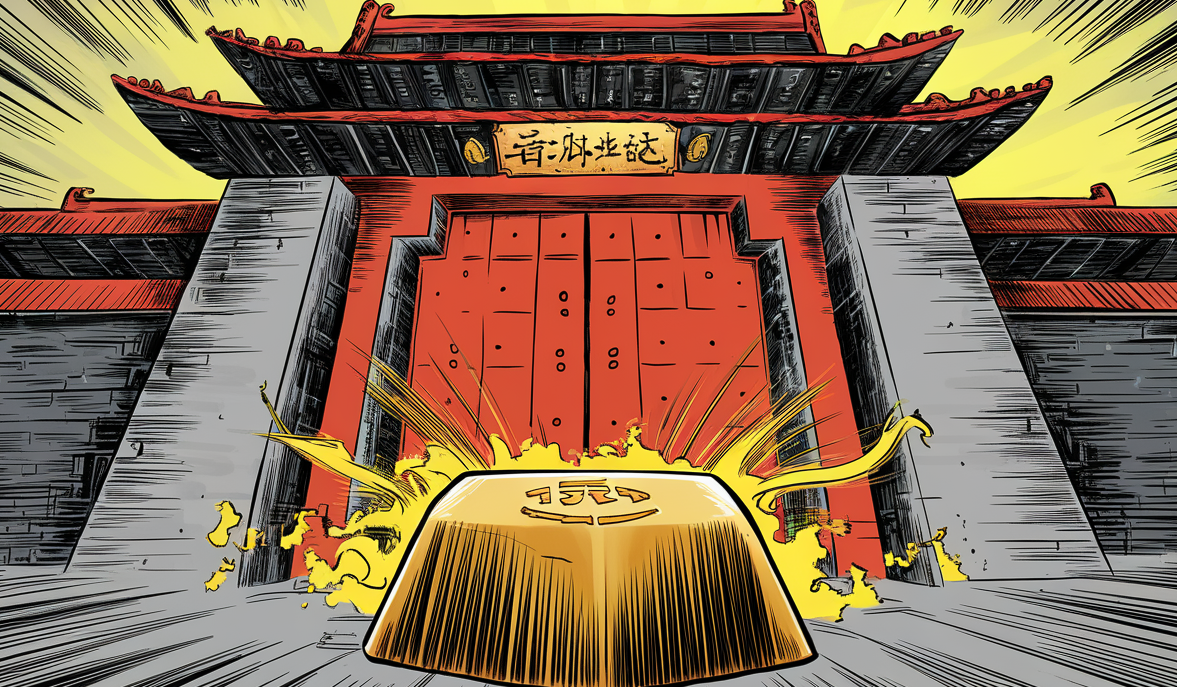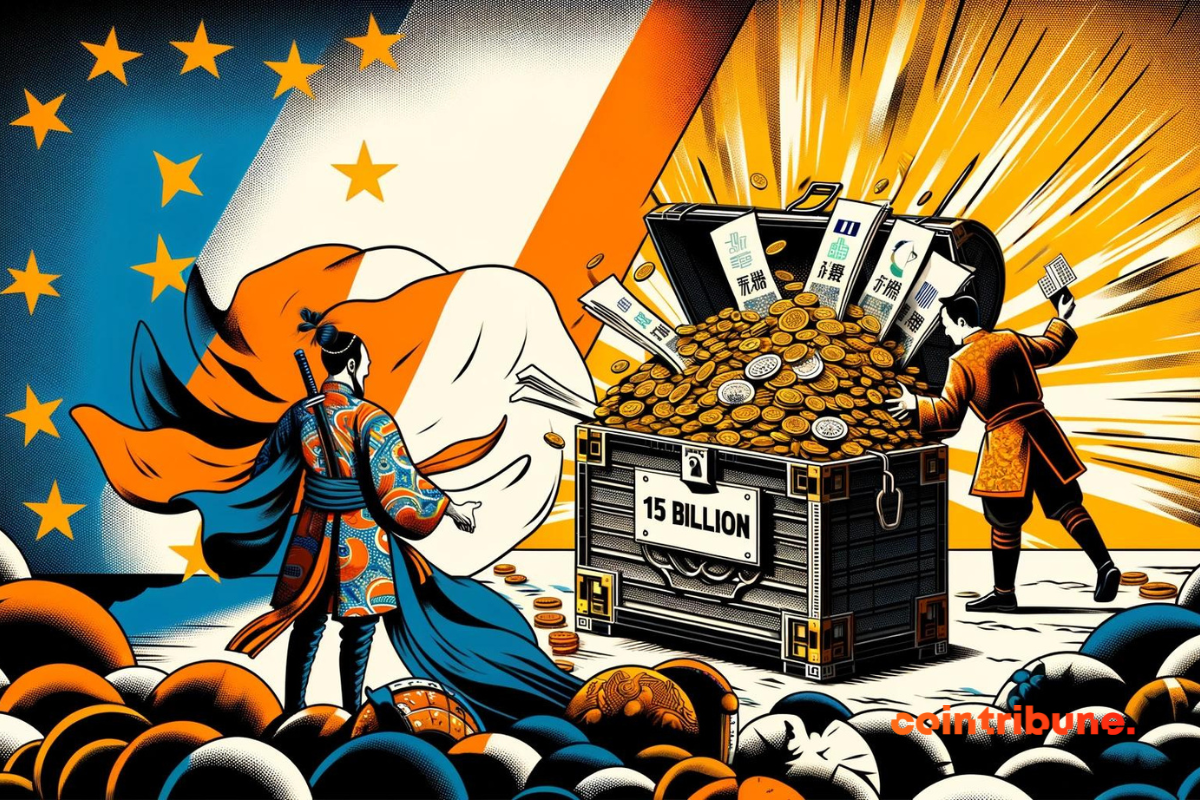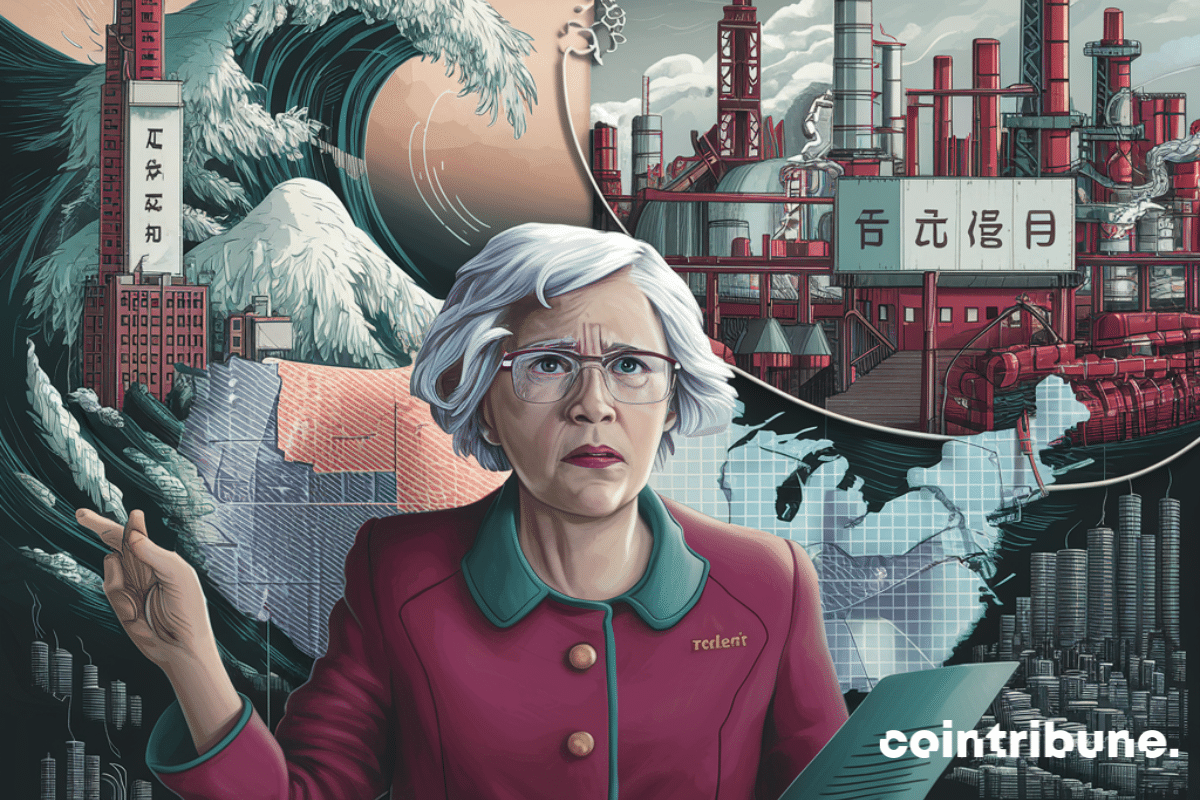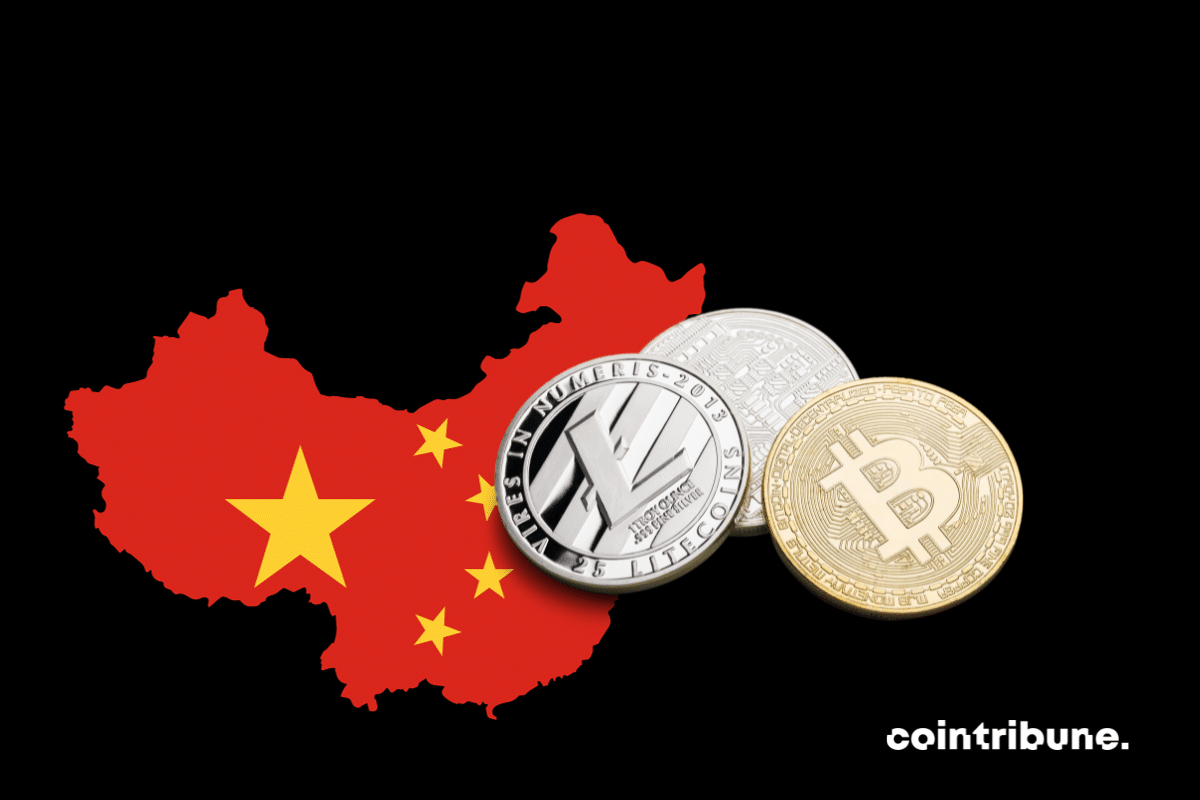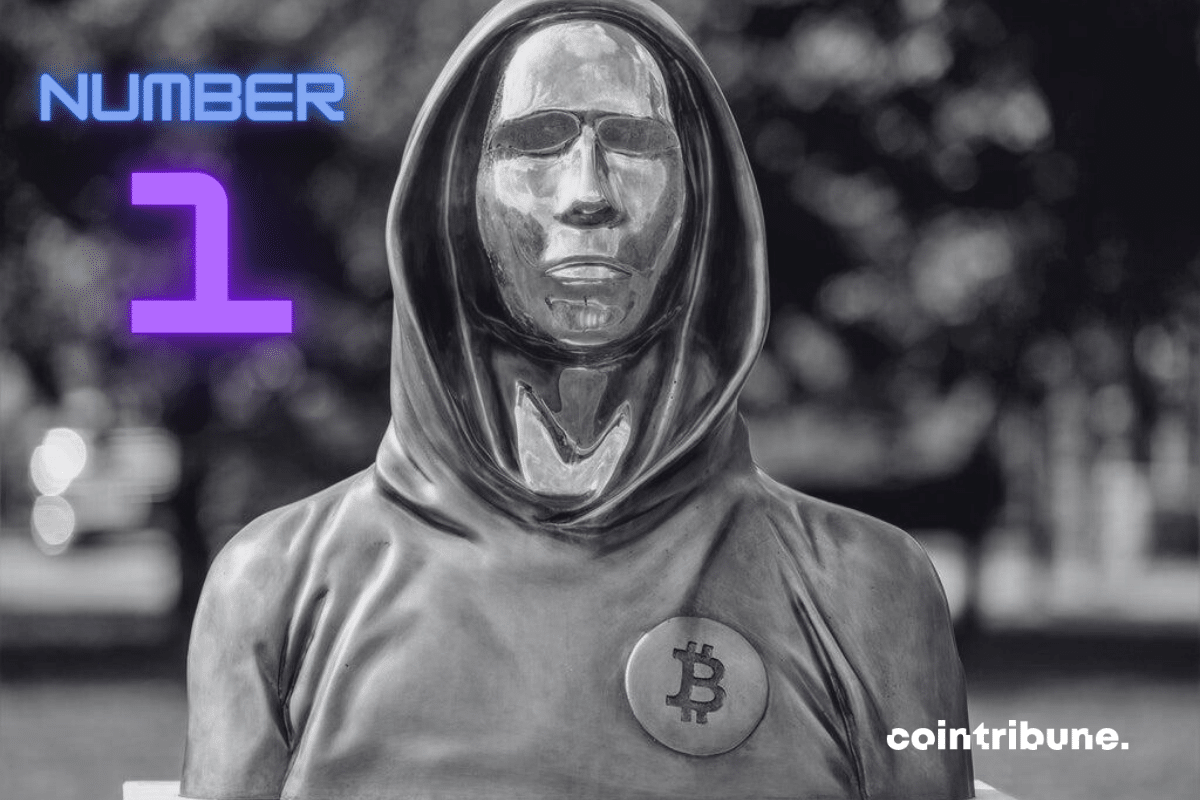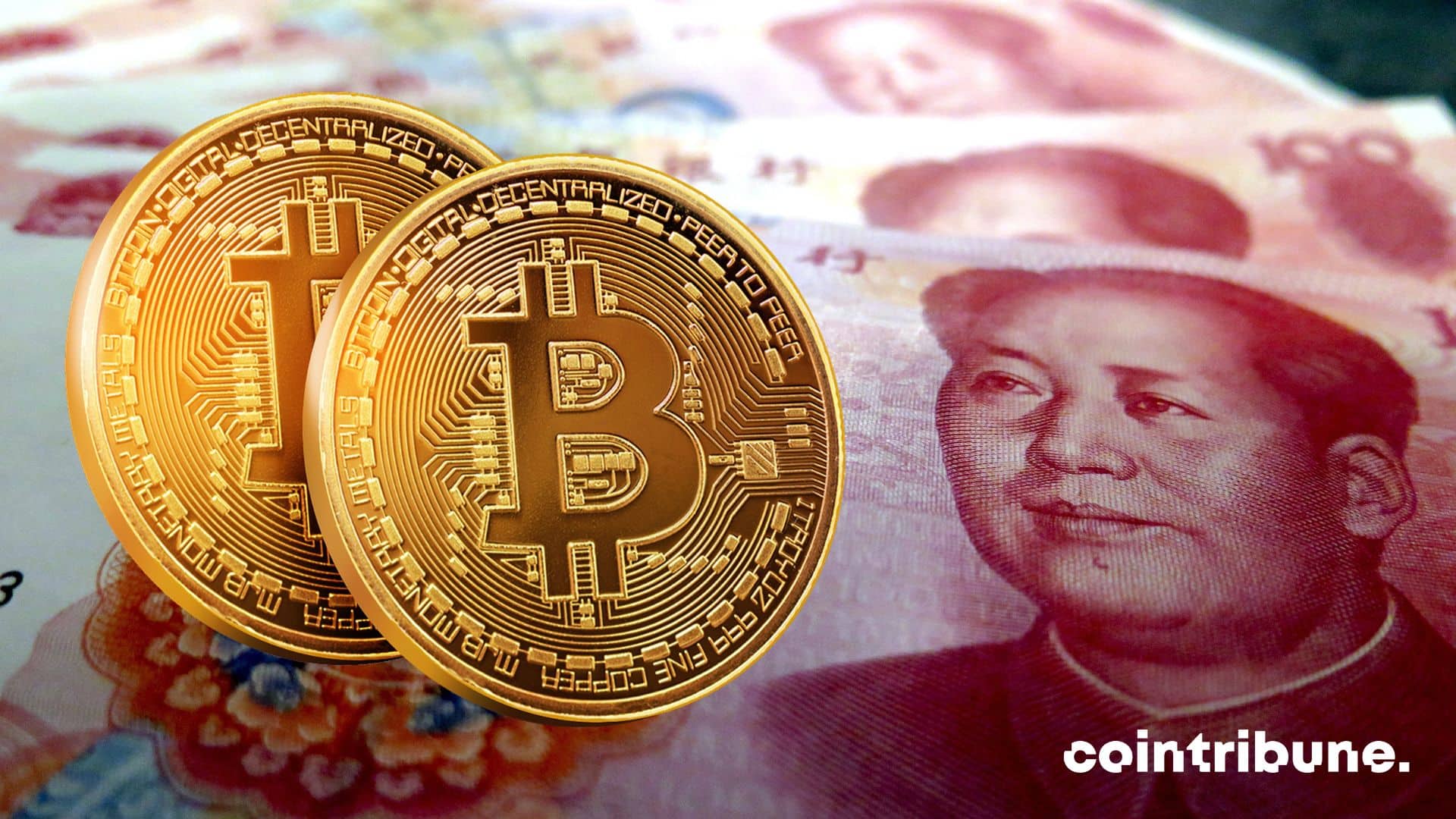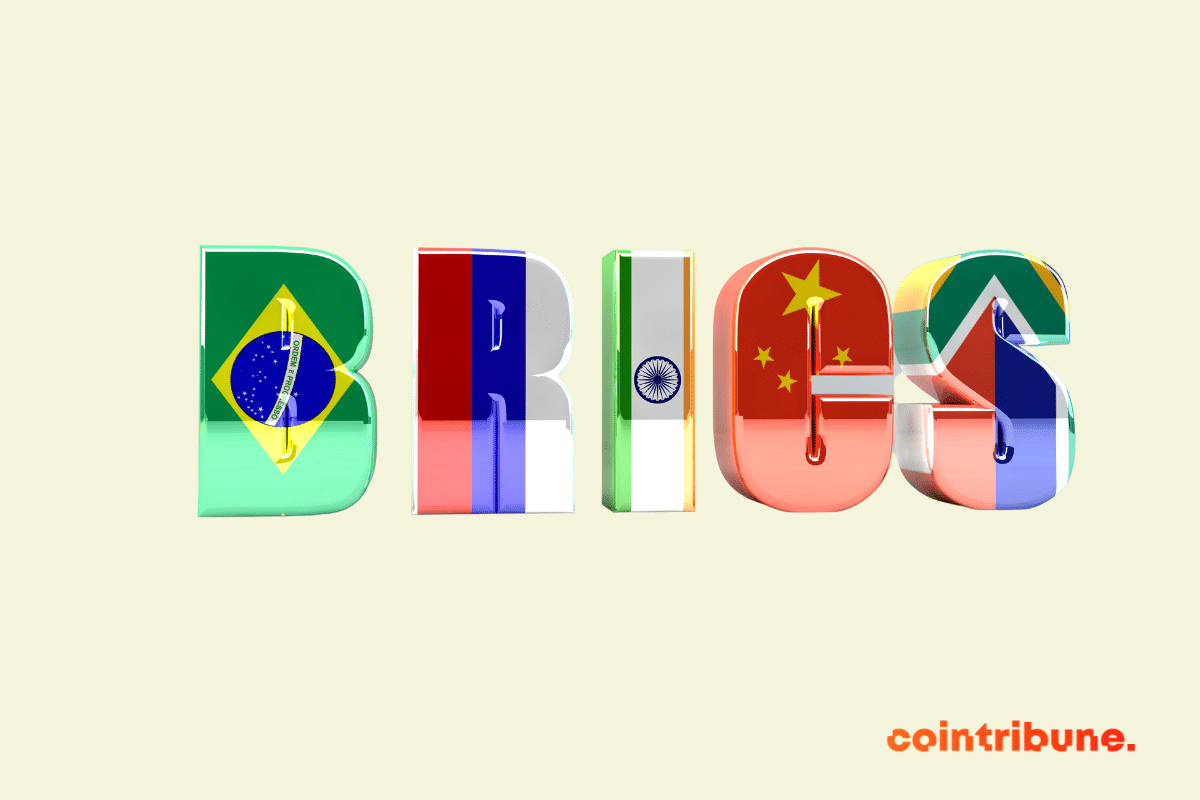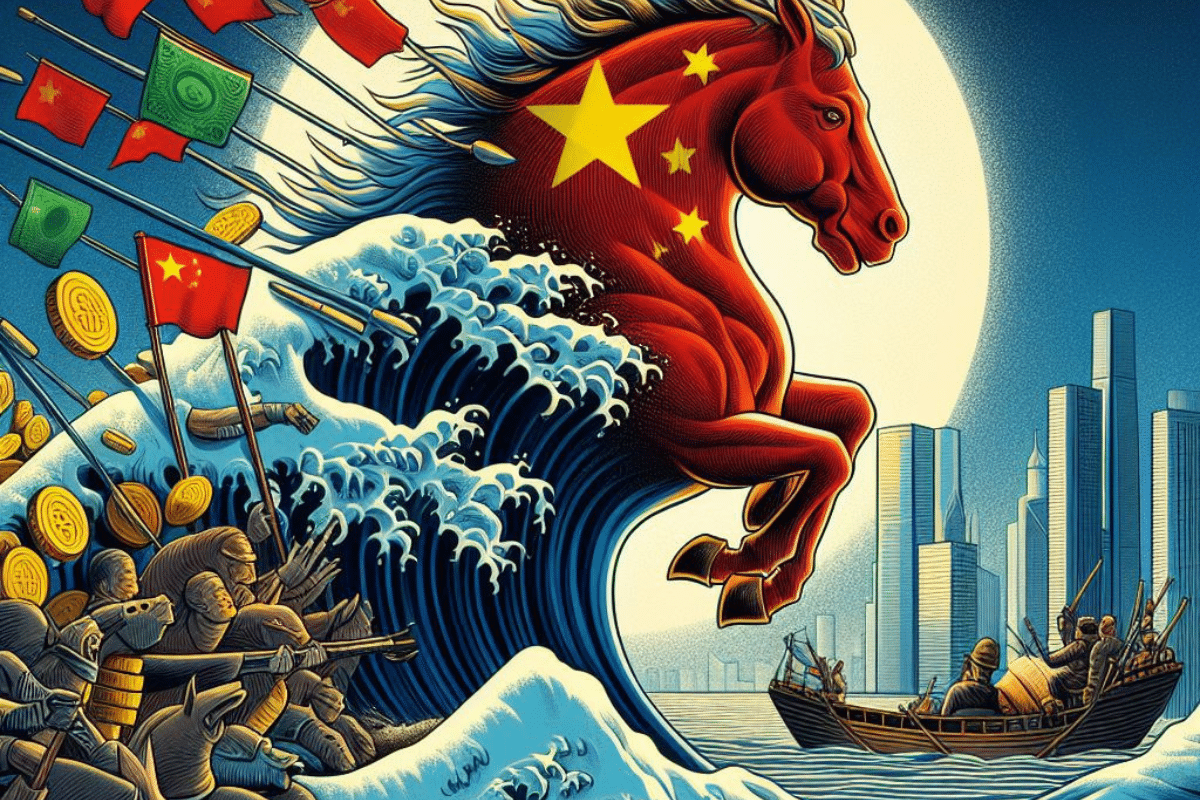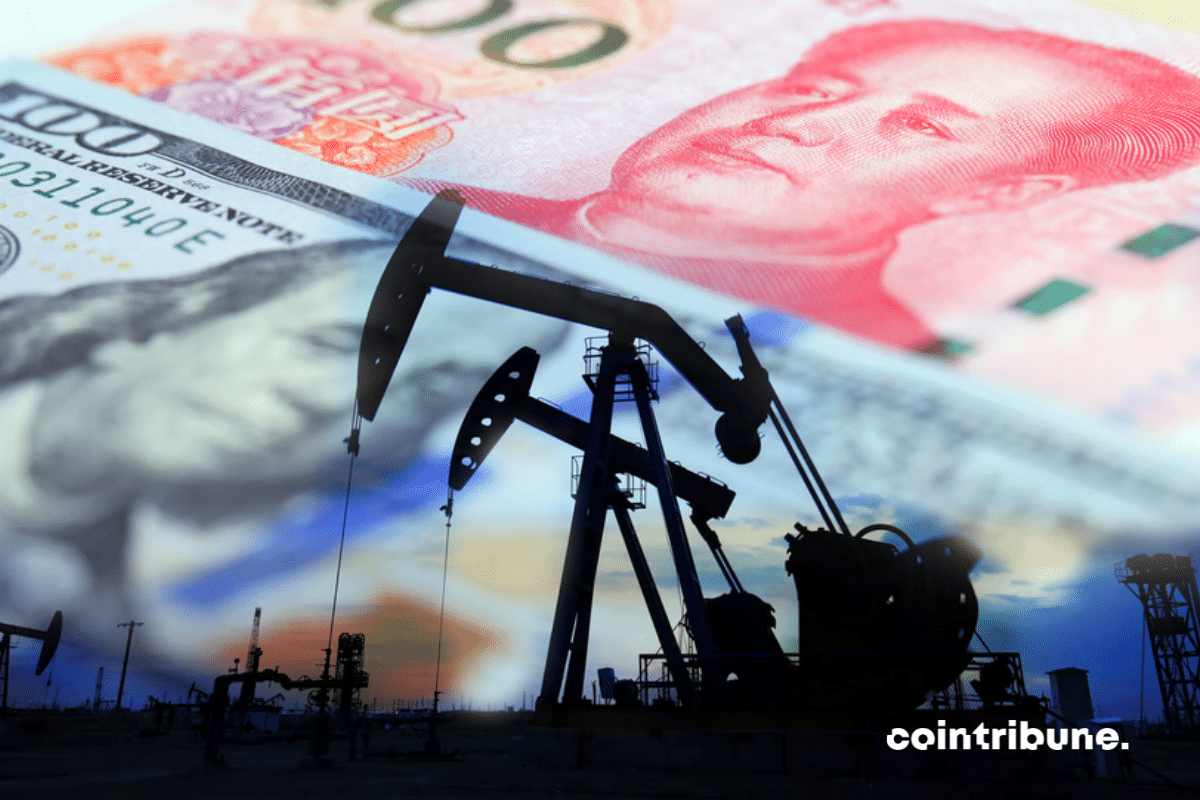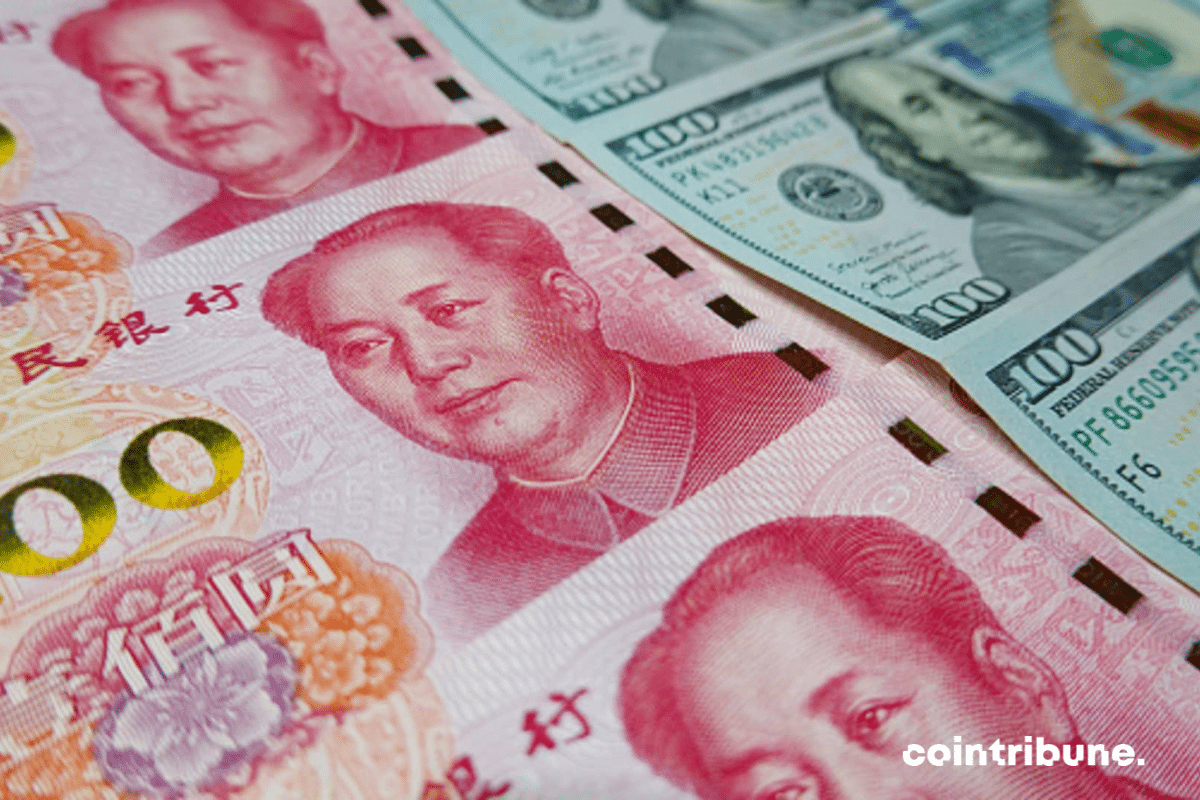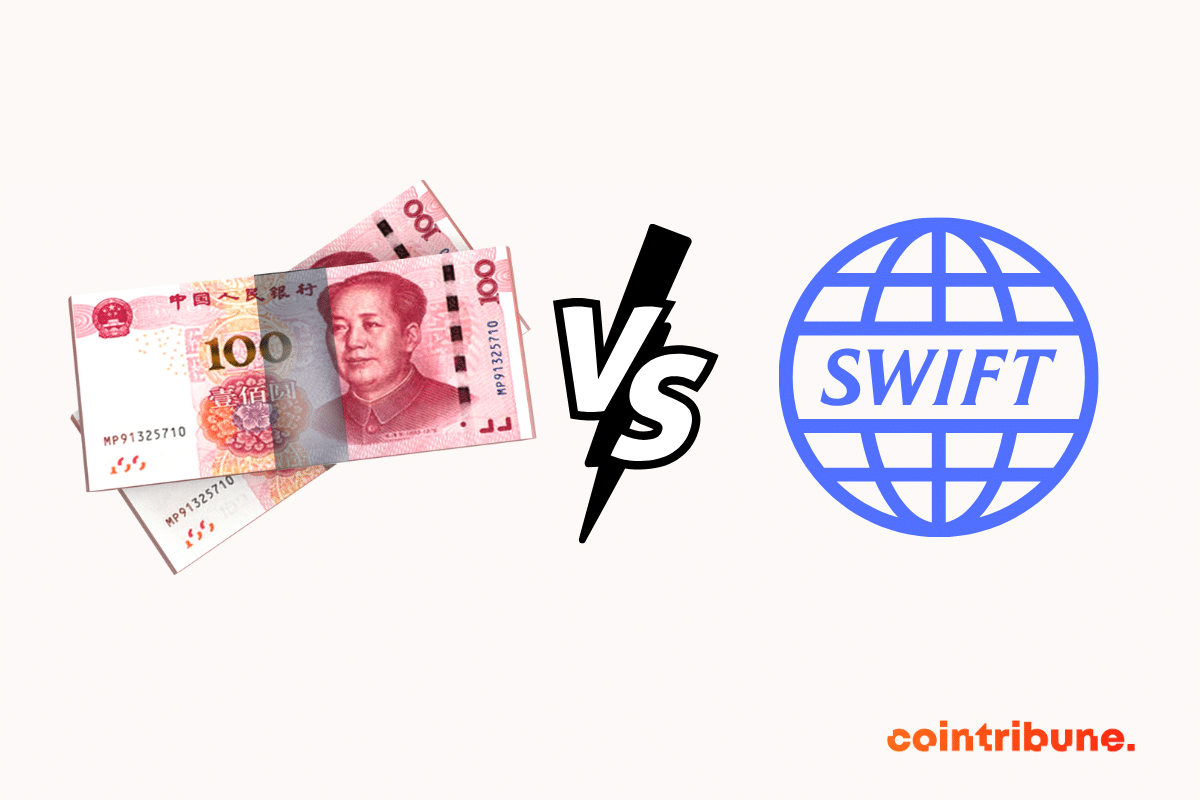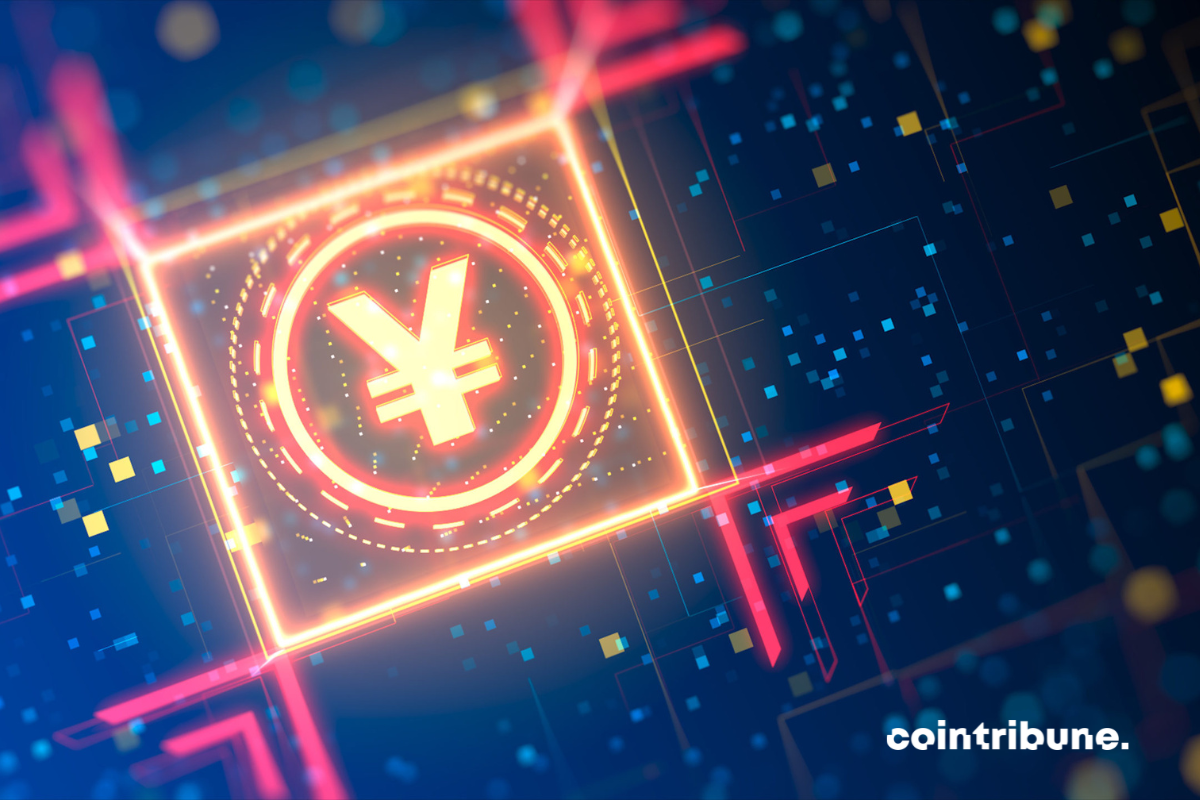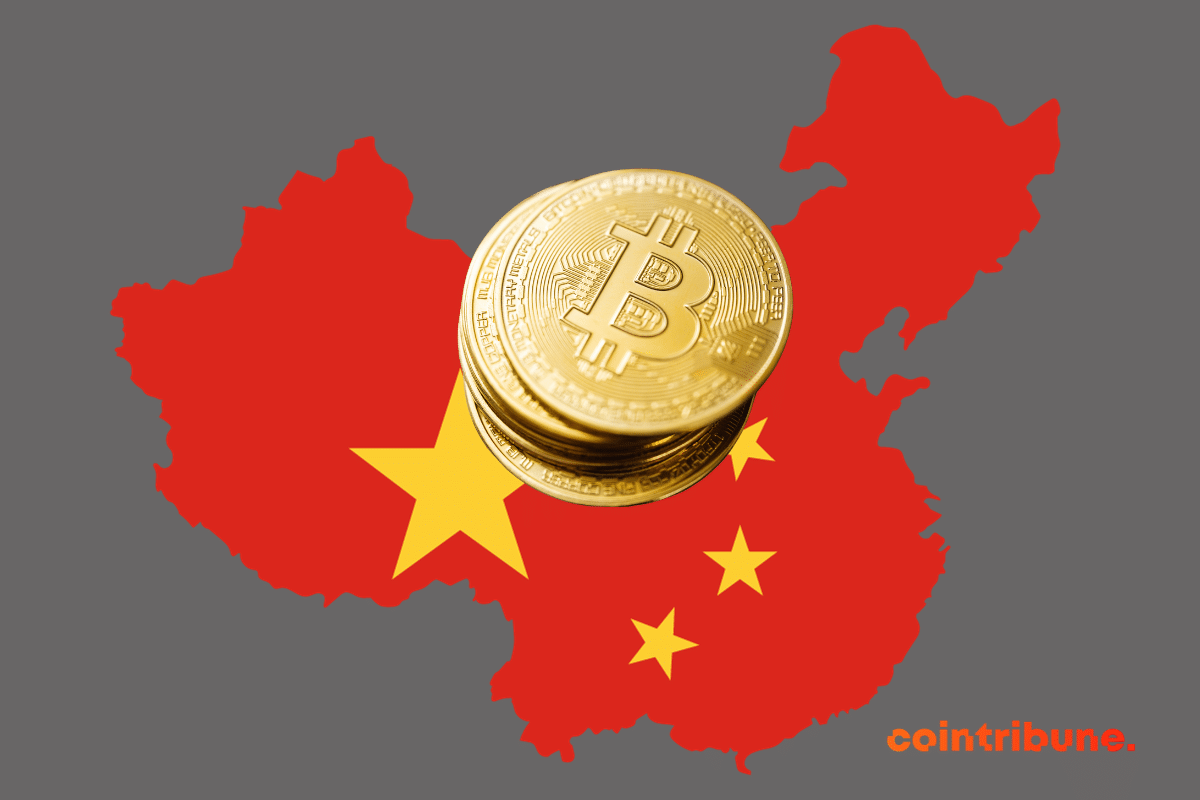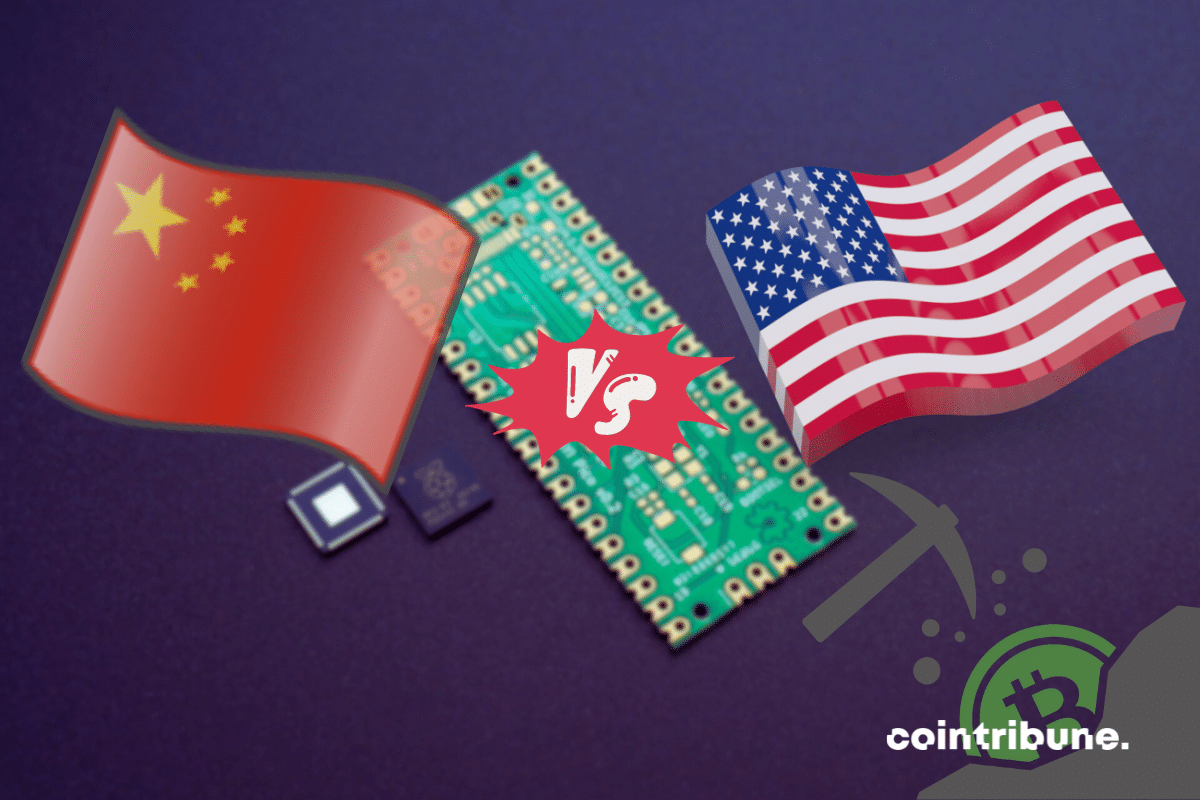Trade tensions between the European Union and China are taking a new turn. While the economic relations between these two powers are already fragile, a new Chinese investigation targeting European dairy products threatens to exacerbate the situation. Through this accusation that European exports distort competition with what are deemed unfair subsidies, Beijing is opening a new front in this latent trade war. In response, the European Union has approached the World Trade Organization (WTO).
China
Cryptocurrency underground trading in China reached $23.7 billion in 2024, despite increasing government crackdowns.
In an increasingly tense global economic context, China has just issued a significant strategic advisory for its electric automotive manufacturers. As the undisputed leader in electric vehicle production, China has made a major strategic decision. Beijing has advised its manufacturers to abandon any intention of investing in India and Turkey, two promising and rapidly growing markets.
When 134 countries play sorcerer's apprentices with CBDCs, it is 98% of the global economy that enters a zone of digital turbulence.
The internationalization of the yuan is progressing much faster than the figures from the Swift organization suggest. Bitcoin is lying in wait.
Faced with the increasing restrictions imposed by the West, Russia and China are now exploring alternative ways to maintain their exchanges. As Chinese banks, once open to transactions in yuan, begin to close their doors to Russian payments for fear of reprisals, new methods are emerging.
Xi Jinping's major economic meeting has recently attracted attention. Indeed, Chinese leaders seem to be preparing for a slowdown in growth while reaffirming their commitment to "high-quality development." But what does this statement really mean and what impacts can we anticipate for the global economy? Let’s dive into the details of this meeting and explore the potential ramifications of this strategy for China's economic future.
The American and Western hegemony is being challenged by the rise of China. As Beijing continues to strengthen its economic influence across the globe, perceptions vary significantly depending on the income levels of nations. This analysis explores how China is reshaping the global economic landscape and the contrasting reactions from different regions of the world to this evolution.
The tensions between China and the European Union are escalating with recent trade measures. While Brussels targets Chinese electric vehicles with new tariffs, Beijing responds by investigating a key sector of European exports. This situation highlights the challenges and stakes for the economy that both powers must face.
The Chinese yuan has been trying for years to dethrone the US dollar as the world's reserve currency. Despite gaining power and making constant efforts, the Chinese currency has not yet succeeded in surpassing the greenback. As de-dollarization gains momentum, the yuan struggles to establish itself as a credible alternative.
The Chinese central bank has significantly slowed down its gold purchases in recent months. Is this the beginning of a strategic shift? What about bitcoin?
At the seventh edition of the Choose France summit, France reached a decisive milestone by attracting foreign investments amounting to 15 billion euros, a historic record. This event, held at the Palace of Versailles on May 13, 2024, highlights a major geopolitical shift: while American companies now dominate investment flows, China, once a key player, is gradually stepping back. This dynamic not only reflects a global strategic shift but also the increasing attractiveness of France as a hub for innovation and economic growth.
During her visit to China, US Treasury Secretary Janet Yellen sounded the alarm about the massive subsidies granted by Beijing to its industry. These aids could destabilize the global economy by leading to production overcapacity.
According to Ray Dalio, a confluence of factors could precipitate the Chinese economy into a storm of unprecedented violence for this century!
Chinese finance starts 2024 on fragile footing, with an uneven recovery despite efforts deployed!
Striking contrast: stagnant Chinese market, booming Indian market. High valuation of India raises concerns.
Cryptocurrencies are not welcome in China. The Asian giant has been implementing a policy of repression and even banning activities related to these assets for years. This strategy is echoed by some Chinese legal experts. This suggests that China's hostility towards cryptocurrencies has a long way to go.
So far, the wallet of Bitcoin's father is the richest of all. Celebrities, governments, companies, or cryptocurrency exchanges of all kinds have not been able to dethrone him in the ranking of wealthy Bitcoin holders. Details!
The United States finds itself at a strategic crossroads today. Despite the increasing power of China and the BRICS, the military potential of the United States is declining. As military conflicts multiply around the world, are we witnessing the end of American military superpower and the death of liberal democracy?
In China, authorities have just dismantled a major parallel banking network based on cryptocurrencies.
China is embracing the crypto revolution? Over 50,000 developers are working on the state's blockchain platform!
The BRICS have co-opted several countries this year. A historic geopolitical moment that is expected to continue in 2024. An official from the group of countries revealed that six new countries will join the organization next year.
While Chinese growth is faltering, Beijing is not hesitating to open the floodgates of fiscal and monetary stimulus in order to try to boost its battered economy. With credit easing, early distribution of local borrowing quotas, and massive issuance of government bonds, the Middle Kingdom is multiplying unprecedented expansionary measures. Objective: to regain vigorous growth by 2024.
The twilight of the petrodollar is no longer a myth. China and Saudi Arabia are rapidly de-dollarizing their exchanges. When will the petro-bitcoin arrive?
Is the trend towards de-dollarization exaggerated? Is the petrodollar system coming to an end? Will the BRICS go all the way?
China's hegemonic ambitions in the economic sphere have been well-known. The desire of the Asian giant and its BRICS partners to move away from the dollar is essentially an expression of this ambition. This ambition has recently seen progress involving the euro, the currency used in the European area.
A Chinese multinational has just made its first-ever purchase of oil using the digital yuan (CBDC). The petrodollar is facing challenges.
China has formally expressed its opposition to the rise of cryptocurrencies. In a recent detailed economic statement, the Middle Kingdom reaffirmed this stance and announced its determination to toughen its position on the matter.
The cryptocurrency sphere has always been a fertile ground for debates, controversies, and technological advancements since its inception. China, one of the world's largest economies, has now contributed a new chapter to this ongoing saga, particularly concerning Tether. This story isn't just about an unpaid loan; it delves into the very essence of what cryptocurrencies mean in a country where the rules of the game are constantly being redefined.
Between China and the United States, the hatchet has never been buried. The trade war initiated by the two superpowers in 2018 took on a different form a year later. Since 2019, analysts have renamed this Sino-American antagonism the 'technology war.' It began with a decree banning Chinese technologies meant for equipping American 5G companies. Packs of sanctions followed this restriction, unfortunately creating a boomerang effect. Electronic giants specializing in bitcoin mining chips like Intel and Nvidia are suffering.

